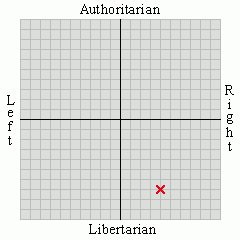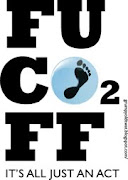I love a sunburnt country,A land of sweeping plains,Of ragged mountain ranges,Of droughts and flooding rains.
A century ago, when Dorothea Mackellar wrote those words, Australia was already known for both droughts and flooding rains.* I've got some sympathy for the view that building on flood plains isn't a great idea and said as much yesterday (doubt my suggestions would go down well though) but do give it a fucking rest with the warble gloaming mantra, eh? You can't carry on claiming that every weather event or absence of same backs up your personal beliefs and expect people not to notice that you're playing a heads-I-win-tails-you-lose game. It's weather, it happens, it's been happening for a long time. Droughts and flooding rains, Mike, just as Mackellar wrote more than 100 years ago. Oh, sure, it seems extreme because most of us will see something like this only once or twice in our relatively brief lives, if at all. But if we could have the perspective of a one of the longer lived types of tree we'd probably be moaning that the extreme weather these days isn't a patch on the extreme weather we used to get when we were saplings, but these la-di-dah know-nowt shrubs today just don't believe yer. I 'ad to grow oop in hole in't road, yer know, etc etc. What does tend to be extreme and increasing is property damage, but that's partly because inflation sees to it that the same amount of damage costs more to put right as time goes on and partly because, as Mike points out, we're increasingly building in harms way. Both are man made effects, but of the anthropogenic fuckuparation variety rather than necessarily anything to do with climate.
But what really makes me think that this respected financial commenter must be swathed in duck tape on his office chair while a recently retrenched Pilkington taste tester giggles and taps away at his keyboard is in the last paragraph.
As for the economics of it, yes, there are terrible numbers being bandied around, but while there's damage and destruction and loss, there's also massive stimulus in the rebuilding.One would think that a respected financial commenter would have done a better job at avoiding, or at least hiding, an example of the Broken Window Fallacy.
It's barely over, if indeed there isn't more to come, so it's way too early to look up estimates of the damage repair costs, but we can be sure it'll be in the billions. Let's just say for the sake of argument that it comes in at a not implausible $30 billion (I saw $9bn mentioned somewhere as a "so far" estimate a week or so ago before it started getting really bad). It's probably on the low side but no matter. Now let's imagine that the cost is split evenly between federal and state governments and private sector. $10 billion from Canberra means in rough terms 500 bucks from every citizen in the country, either from taxes already paid or taxes that will have to be paid in the future. If the former then something that would have been done by the government now cannot be, and if the latter then something I or Kate from Kalgoorlie or Sam from Sydney might have chosen to spend $500 will go unbought, the money having gone to repair flood damage up north instead. The same applies to Queensland state government, except that being a much smaller tax base of I'd guess a couple of million or so people it'd be closer to five grand each... in addition to the $500 Canberra got off them. And the private sector? That'd be the profit line of the insurance industry (and the dividends of the shareholders, which could include pension and superannuation funds) for those who had flood insurance, and charitable donations and their own savings for those who didn't. In all cases money spent fixing the damage is money that cannot now be spent on something else.
Stimulus? Complete crap. Even if I bought the idea of public works as economic stimulus repairing damage and destruction is not the same as building something new and useful. At best it's robbing Peter to pay Paul, but in all likelihood it's actually a negative. Like the baker who ended up with a window when he might have had a window and a suit, the damage from the Queensland floods will eventually be repaired or replaced, or at the least cleaned up. But had the floods not happened Queensland would have had everything that now needs to be replaced, plus it and everyone else who'll now chip in would have had vastly more besides. Sure, the damage must be repaired but to suggest that this is in any way good for the Queensland or Australian economies as a whole is as laughable as suggesting that vandalism is a good thing, and it makes no difference that it's a chance act of nature rather than human agency at work.
On the other hand since Michael Pascoe, or whoever has the poor bugger tied up in a filing cabinet, believes that the floods are caused by warble gloaming then presumably carbon dioxide emissions are something good that we should all be doing more of. This must be good news for the coal mines of the Latrobe valley, right?
PS - when I first posted this I said that Dorothea Mackellar wrote My Country in 1904. In fact she began it in 1904 and the poem was published in 1911. I suppose you can pick either or any year in between for the date but all the same I've edited what I first said to cover all the bases.
* The lines are from Core of my Heart, usually known simply as My Country. You can read the whole poem here.


















